Hola and welcome to Where on Planet Earth! In case you got here by accident and are not yet a subscriber, sign up below! For more visuals on our travels please follow us on IG @whereonplanetearth
COLOMBIA!!!
If there is a country in the world Venezuela shares a lot with, it’s Colombia. Not only were we both part of the “Gran Colombia” - a state that encompassed much of northern South America and part of southern Central America from 1819 to 1831 - but we share the a long Caribbean coast, good Rum, (almost) a flag, and of course, AREPAS (although they are better in Venezuela - as is the rum - but don’t tell them that ;)).
Colombians are kind and welcoming, and honestly after a month and a half in Brazil I am extremely thrilled to fully understand and be understood by people.
Coño, que felicidad hablar español, nojoda!
All of this to say that I am really happy to be here! I can’t go to Venezuela at the moment due to passport issues, so exploring the Caribbean coast of this nation seems like a good compromise. And also a way to learn about this mysterious neighbor of mine.
Growing up in Venezuela, Colombia was not much more than a dangerous place marred by violence. For decades - starting in the 1970s - the country struggled with controlling the illegal drug trade which lead to high levels of brutality and terror by the cartels, guerrilla groups like the Revolutionary Armed Forces of Colombia (FARC) and M-19, and paramilitary groups. To name a few things that happened during that time:
The Palace of Justice was taken hostage by guerrillas resulting in more than 100 killed, including half of the Supreme Court judges.
Many presidential candidates and ministers were targeted and killed by the cartels.
Regular citizens and even tourists were kidnapped and taken hostage - sometimes for decades - by the FARC in order to finance its activities.
At the turn of the millennium homicide become the leading cause of death in the country, and the homicide rate was the highest in Latin America. The situation was dire for many decades.
During the 20 years I lived next door to Colombia it never once crossed my mind to visit it. In fact, during that time many Colombians were fleeing the country and migrating to Venezuela. In the 1990s, Colombians amounted to 77% of all immigrants in Venezuela.
Eventually, after many attempts by the Colombian government to negotiate with the FARC - which was the group perpetrating most of the terror on civilians - a peace agreement was signed in 2016, which paved the wave for the official end to the fifty+ years of conflict, which killed more than 250,000 people and affected more than six million.
With time, an increase in political stability, and a sharp decline in violence, tourism has grown to be an important economic driver for the country, and all governments - right and left - have made it a priority. Following the Peace Agreement, the country saw an increase of 43% in international visits within a year’s time! In 2019 they had a record 4.5 million visitors.
Venezuela, on the other hand, went from a country receiving immigrants and tourism to one pushing its own people out. Venezuelans have been migrating to Colombia in droves. Colombians who had previously migrated to Venezuela are also coming back. One Venezuelan taxi driver we chatted with married a Colombian who migrated to Venezuela when she was a child in the 90s; now, they are back here again.
More than 7 million Venezuelans have left the country since 2015, that is more than 20% of the population. Imagine if sixty six million people had to leave the United States in less than 10 years.
Most have stayed in Latin America and the Caribbean, with Colombia receiving the largest amount, around two and a half million. It’s no wonder the country has struggle to keep up with the needs of both citizens and migrants.
And so, Venezuelans are here, overcoming and adapting. They are street vendors and business owners, they are the Uber drivers and doctors, they are chefs and fishermen, they are making this country their own.
As I walk the vibrant streets of Cartagena and see street vendors selling Chicha and tequeños, standing in front of arepas shops, speaking in the indistinguishable Venezuelan accent, I feel a little bit closer to home.
Gracias Colombia <3
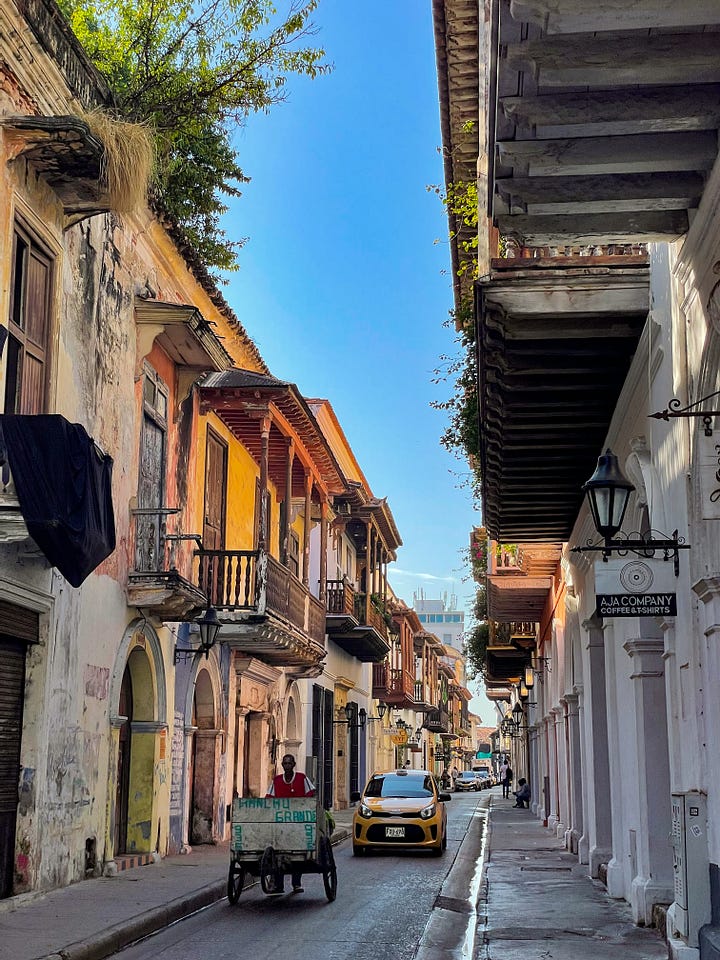
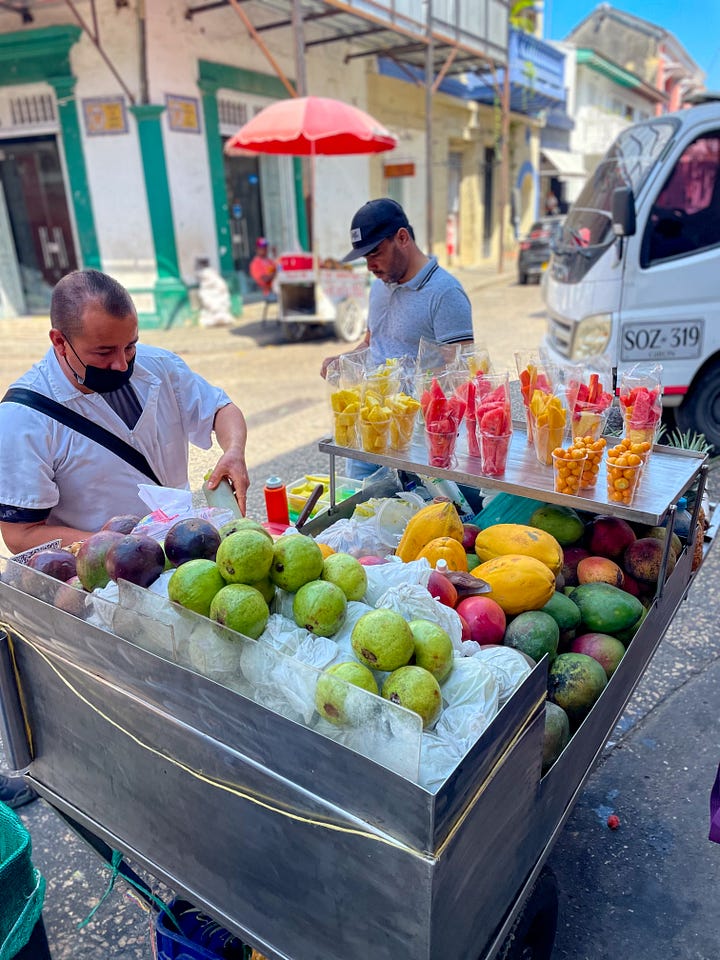
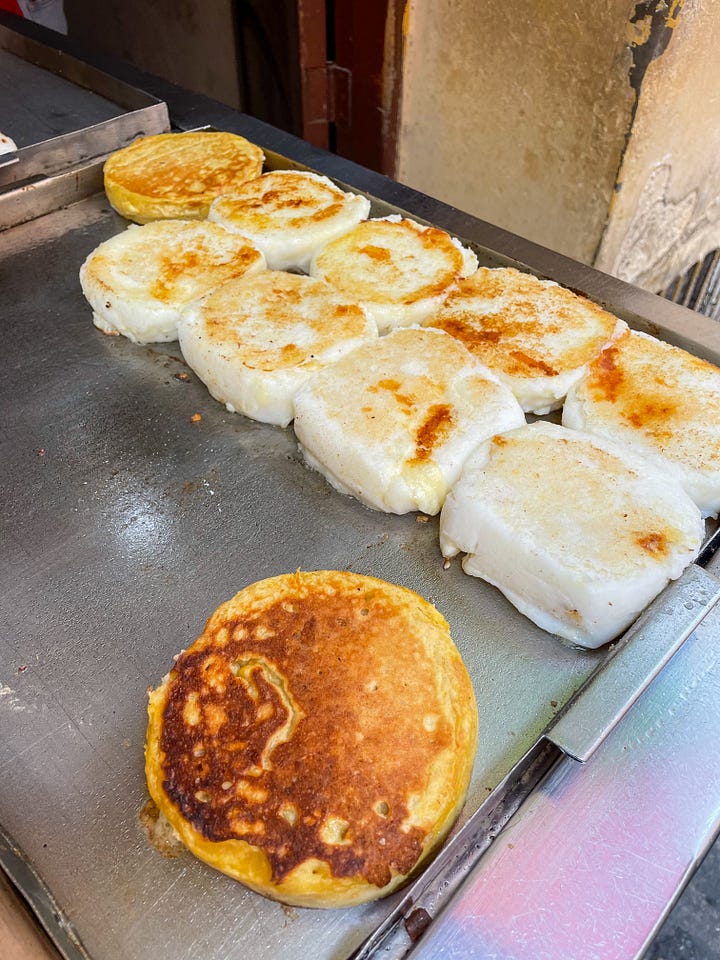
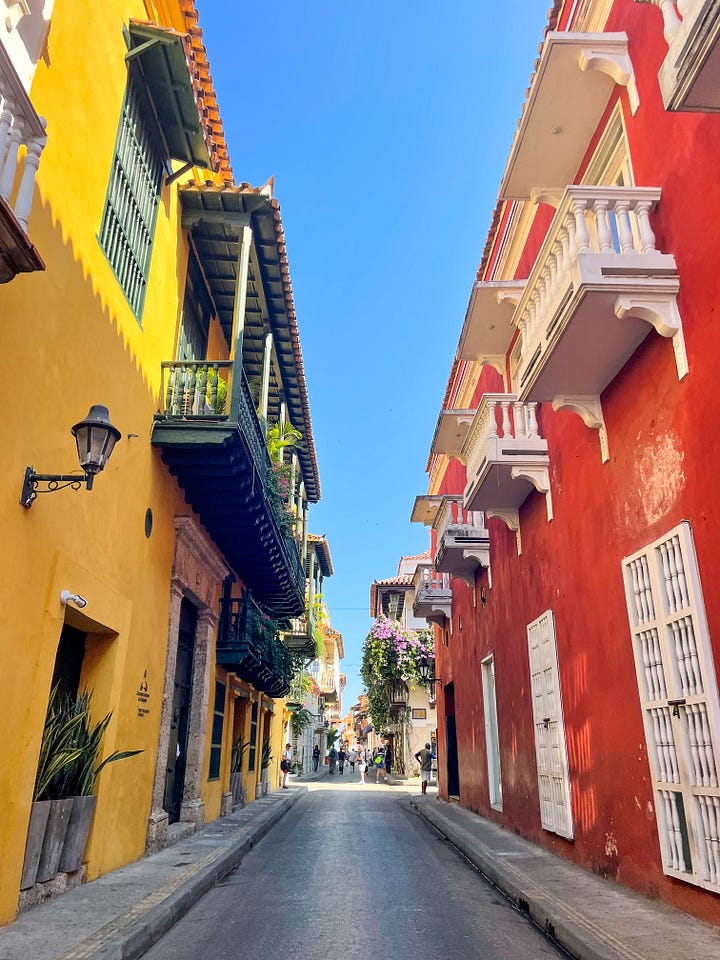


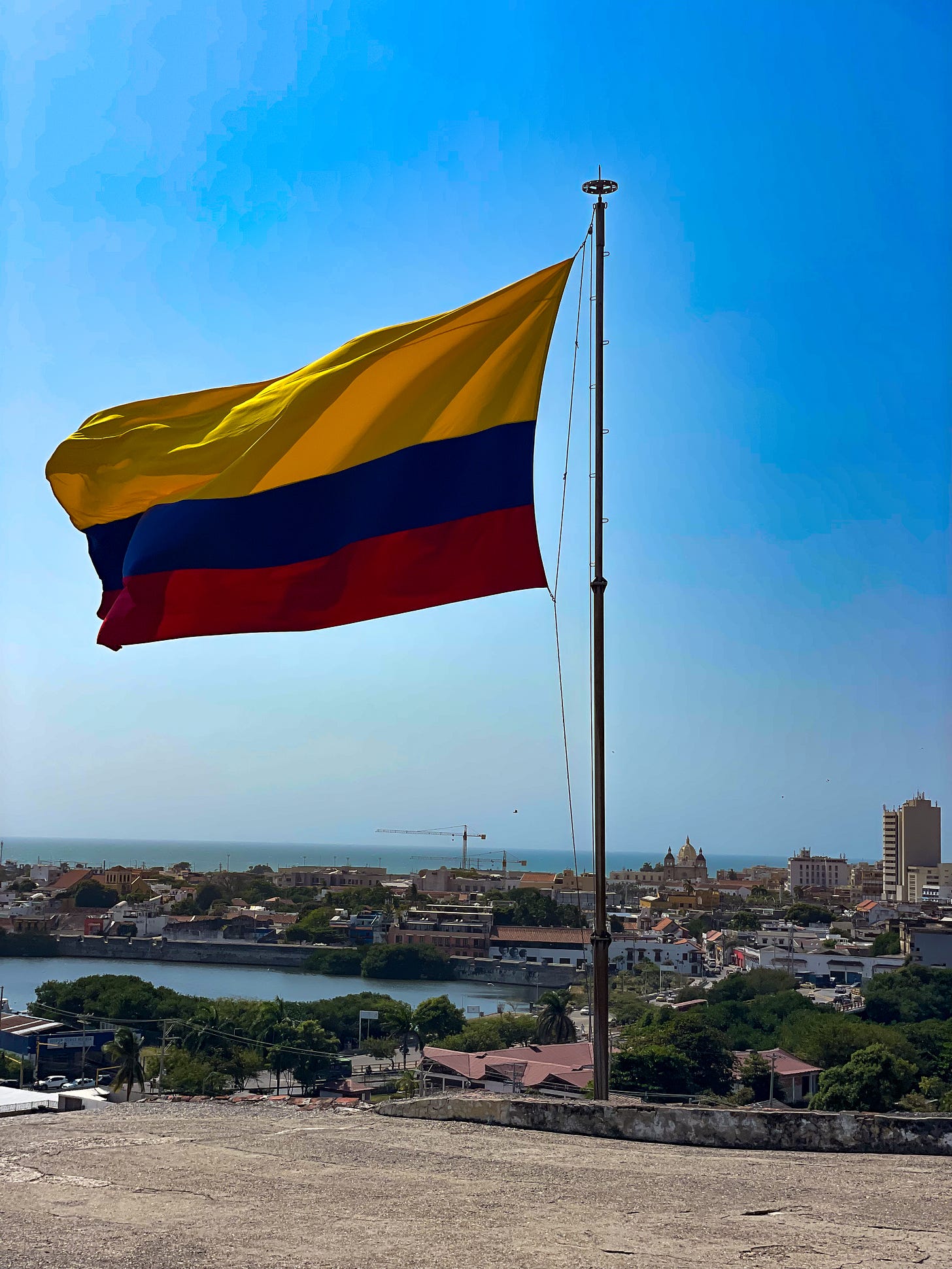


Me encantan tus relatos de todos los sitios que visitan. Cartagena se ve increible, vibrante, y hermosa. Gracias por compartir tus experiencias.